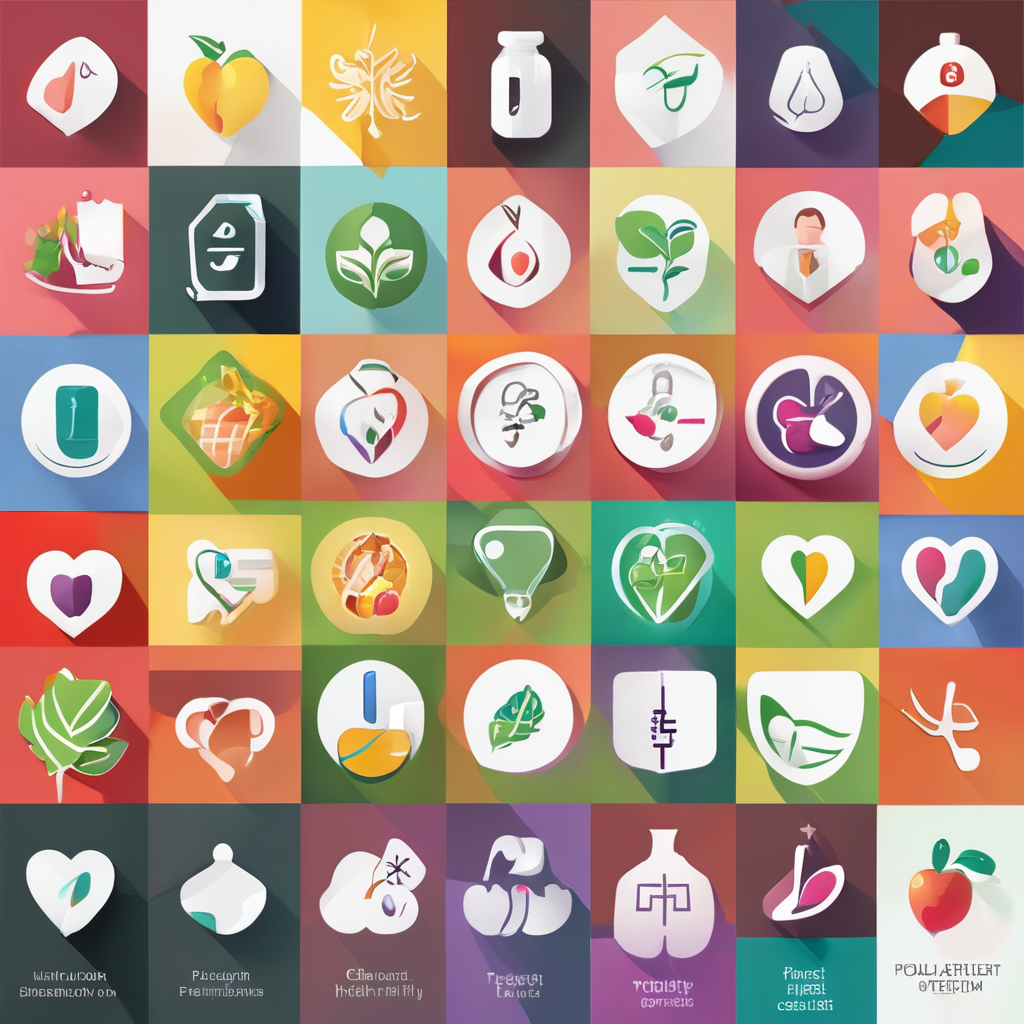Overview of Ulcerative Colitis
Ulcerative colitis is a chronic type of inflammatory bowel disease (IBD) that primarily impacts the large intestine. It presents as continuous inflammation and ulcers in the lining of the colon and rectum. This condition can be debilitating, significantly affecting the digestive system and quality of life. Common symptoms include persistent diarrhea, often with blood or pus, abdominal pain, and cramping. These symptoms can lead to additional challenges such as fatigue, weight loss, and malnutrition due to the body’s impaired ability to absorb nutrients.
Traditional treatments for ulcerative colitis mainly focus on reducing inflammation and alleviating symptoms. These can include anti-inflammatory drugs, immune system suppressors, and biologics. However, they frequently come with limitations, including side effects and the potential for decreased efficacy over time. While medications can help control flare-ups, they do not cure the disease, and surgery might be required in severe cases.
Additional reading : Unlocking the Perks: How a Gluten-Free Diet Can Enhance Life for Those with Non-Celiac Gluten Sensitivity
Individual experiences with ulcerative colitis can vary widely, making management quite personal. Understanding the complex nature of this disease can empower those affected to explore a wider range of treatment options and lifestyle adjustments for improved management and quality of life.
Benefits of a Plant-Based Diet
Incorporating a plant-based diet into daily life offers a variety of health benefits, particularly for individuals managing conditions like ulcerative colitis. Plant-based diets are rich in essential nutrients that support gut health, such as vitamins, minerals, and antioxidants. These components help bolster the immune system and promote overall well-being.
Also to discover : Unlocking Heart Health: How a Low-Salt Diet Can Help Control Hypertension
Studies have demonstrated a positive link between adopting a plant-based diet and reduced inflammation. This diet, which is high in fruits, vegetables, legumes, and whole grains, is associated with lower levels of inflammatory markers. The high antioxidant content in plant foods contributes to this anti-inflammatory effect, potentially easing symptoms in those with inflammatory bowel diseases.
Another significant advantage of a plant-based diet is its rich fiber content. Fiber plays a crucial role in maintaining a healthy digestive system by supporting the growth of beneficial gut bacteria. This helps enhance digestion and can lead to improved symptom management for ulcerative colitis sufferers.
By focusing on nutritious, fiber-rich foods, individuals can potentially alleviate some of the challenges associated with their condition. This dietary approach can be a key component of a comprehensive strategy to achieve better digestive health and enhance life quality.
Scientific Evidence Supporting a Plant-Based Diet for Ulcerative Colitis
The connection between a plant-based diet and the management of ulcerative colitis has gained significant interest, supported by numerous scientific studies. Research has indicated that plant-based diets, characterized by high fiber and nutrient-dense foods, contribute positively to gut microbiota. A study published in the Journal of Gastroenterology and Hepatology found that participants adopting a plant-rich diet experienced a notable improvement in symptoms, highlighting the role of diet in disease management.
In particular, the prebiotic effects of plant-based foods on the gut microbiome lead to decreased inflammation. This has been evidenced by the presence of increased beneficial bacteria that aid in mucosal protection. The anti-inflammatory properties inherent in whole plant foods contribute to higher rates of remission among ulcerative colitis patients when comparing traditional diets.
Moreover, specific types of plant foods, such as fermented foods and high-antioxidant fruits, are shown to be particularly effective. These items modulate immune responses and oxidative stress, further enhancing gut health. Researchers emphasize the importance of personalized nutrition strategies, adapting plant-based diets to individual needs, and accounting for inflammatory bowel disease variability, which is crucial for achieving long-term health benefits and quality of life improvements.
Personal Success Stories and Testimonials
In the journey to managing ulcerative colitis, many individuals have turned to a plant-based diet, uncovering inspiring testimonials and success stories that highlight personal triumphs over disease symptoms. Through consistent dietary changes, people have reported significant improvements in their condition, exemplifying how food choices can powerfully influence health.
A recurring theme in these testimonials is the relief from debilitating symptoms like chronic fatigue and abdominal pain. Adopters of a plant-based diet often note reduced occurrences of flare-ups, an increased sense of energy, and overall improved well-being. These accounts underscore the potential for plant-rich foods to act as a supplementary strategy alongside traditional treatments.
Common success elements include a focus on whole grains, legumes, fruits, and vegetables, emphasizing the diet’s nutrient density. For many, such dietary adjustments have led to a transformative lifestyle, enriched with diverse, flavorful foods that contribute to better health outcomes.
These personal experiences provide hopeful narratives for others exploring similar paths. They are reminders of the possible life-changing impact of a well-balanced diet and serve as motivation for those seeking alternative avenues to manage symptoms and enhance quality of life.
Practical Guidelines for Transitioning to a Plant-Based Diet
Transitioning to a plant-based diet can seem daunting, but with structured strategies and planning, it becomes manageable. Whether you’re motivated by the potential health benefits, nutrition enrichment, or curiosity, understanding how to make this diet change will set you on the path to success.
Initial Steps for Transition
Begin by gradually increasing your intake of fruits, vegetables, grains, and legumes. Start small, perhaps incorporating one plant-based meal a day, allowing your palate and digestive system to adjust.
Meal Planning and Recipes
Focus on creating a balanced meal plan that highlights whole, nutritious foods. Resources abound with recipes emphasizing variety and flavour, making it easier to meet dietary needs. Consider weekly meal prep sessions where you can prepare versatile ingredients that can be mixed and matched throughout the week. Staples like quinoa, lentils, and chickpeas are rich in protein and fibre, essential for maintaining energy and digestive health.
Grocery Shopping Tips
Navigating grocery stores with a plant-based mindset involves seeking out nutrient-dense items. Shop for fresh produce in season, explore bulk sections for grains and legumes, and read labels carefully to ensure you’re choosing foods with minimal processed ingredients. Adapting to staple replacements, such as almond milk instead of cow’s milk, can significantly support this dietary transition.
Challenges and Considerations
Adopting a plant-based diet can be transformative, yet it presents notable dietary challenges. One common obstacle is ensuring a balanced intake of essential nutrients. Nutritional considerations such as potential deficiencies in vitamin B12, iron, and omega-3 fatty acids require conscious planning.
Vitamin B12, primarily found in animal products, can be maintained through fortified foods or supplements. Iron, another critical nutrient, is present in plant sources like lentils and spinach. However, its absorption can be enhanced by pairing with vitamin C-rich foods, such as oranges or bell peppers.
The transition to a plant-based lifestyle might also entail cultural or familial hurdles, especially if traditional diets contain substantial animal products. Strategies for overcoming barriers include gradually introducing plant-based meals and encouraging culinary exploration with family. This incremental approach allows both the individual and family to adapt, reducing resistance to dietary changes.
Social challenges may arise, too. It often requires educating friends or dining establishments about dietary needs. Building a support network through online communities or local groups can provide resources and inspiration, easing the journey. By navigating these challenges with informed strategies and a supportive environment, individuals can embrace the benefits of a plant-based diet successfully.











